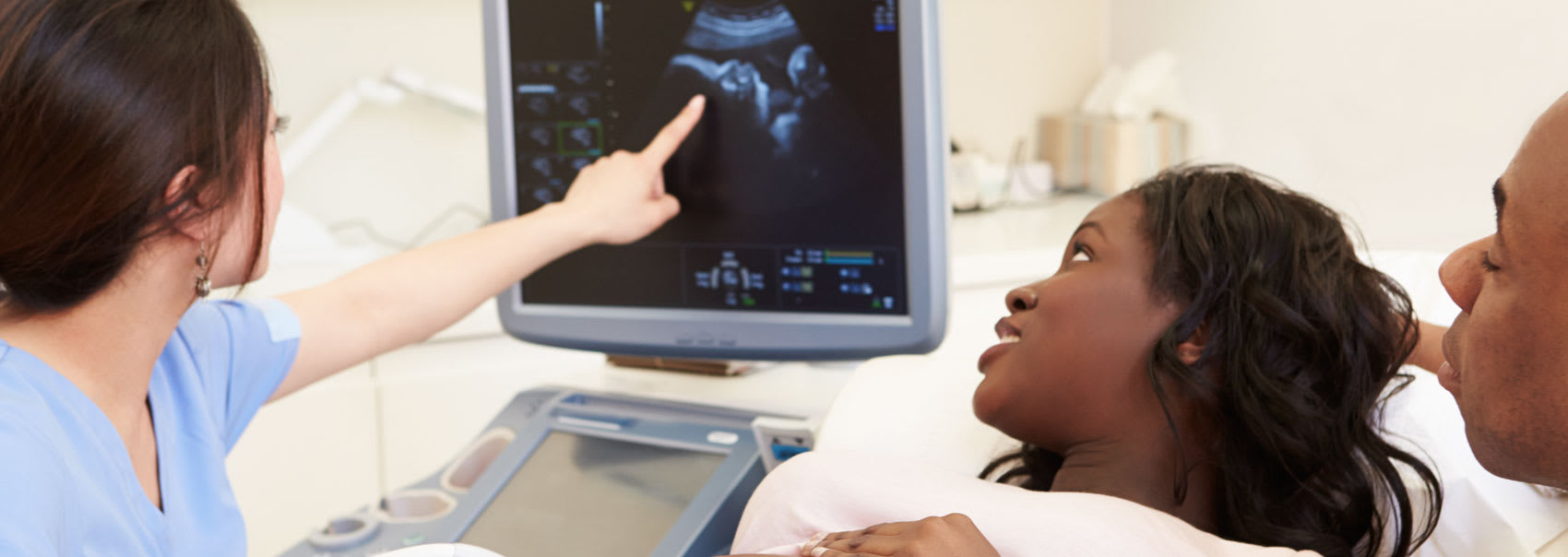What is an ultrasound exam?
An ultrasound scan uses high-frequency sound waves to capture live images from your internal organs. This medical test is also known as sonography. It helps us learn more about the structure and appearance of your body’s internal systems, and to detect any problems with tissues, organs and vessels in your system without needing to perform surgical procedures.
Why would I need an ultrasound?
While most people associate ultrasound scans with pregnancy (women’s ultrasound), this test has many uses other than giving an expectant mom her first look at the fetus growing inside her.
Your doctor may send you for an ultrasound if you’re experiencing pain, swelling or other symptoms that require them to examine your internal organs in order to provide an accurate diagnosis. An ultrasound can give your doctor a look at your:
- Abdomen (abdominal ultrasound)
- Blood vessels
- Brain (in infants)
- Bladder
- Breasts
- Eyes
- Heart
- Liver
- Musculoskeletal ligaments and tendons (joints)
- Kidneys
- Gallbladder
- Ovaries
- Spleen
- Uterus
- Testicles
- Thyroid
- Pancreas
An ultrasound can also guide surgeons’ movements during specific medical procedures, including biopsies.
How should I prepare for an ultrasound?
Depending on the organ or area being examined, the steps you should take to prepare will vary. Your doctor may ask you to fast for 12 hours before your appointment. Conversely, for other tests you may need to drink up to 6 glasses of water 2 hours before your exam, and to avoid urinating so that you will have a full bladder when the test is performed.
Wear comfortable, loose-fitting clothing. The technologist or radiologist may ask you to remove all clothing and jewellery in the area to be examined, or you may be asked to wear a gown.
What should I expect during my ultrasound?
This painless, non-invasive procedure uses high-frequency sound waves to send images to a computer monitor in real-time.
The technologist will place gel directly onto your skin and use a transducer to send sound waves through the gel into your body. The sounds which bounce back are transmitted to the computer and converted to an image.
Unlike other techniques, ultrasound imaging does not use any radiation. For this reason, we prefer this method over others for examining a developing fetus in a pregnant woman. Though you may feel minor pressure or pain if the area is tender, most patients do not typically feel any discomfort from the pressure of the transducer during the exam.
What are the limitations of ultrasound?
Since sound waves can be disrupted by gas or air, this test would not be ideal for organs obstructed by the bowel, or for a bowel filled with air.
Though ultrasound can be used to find out whether the lungs have fluid in or around them, it’s not as useful for obtaining an image of air-filled lungs. Similarly, while ultrasound may be used for examining infection around a bone or for assessing bone fractures, it is not able to penetrate bone.
Sound waves weaken as they pass through the body, making it more difficult to capture high-quality images of the internal systems of large patients, as they will have more tissue.
How long will the ultrasound take?
Most ultrasound exams are over quickly (30 minutes to 1 hour in duration).
What happens after the exam?
The results will be sent to your doctor to review with you. Our radiology team at Premier Imaging will be happy to address any questions or concerns you may have. We will also guide you through any follow-up tests that may be needed.

